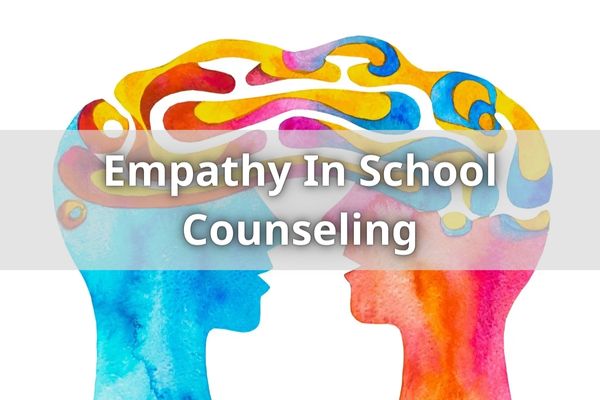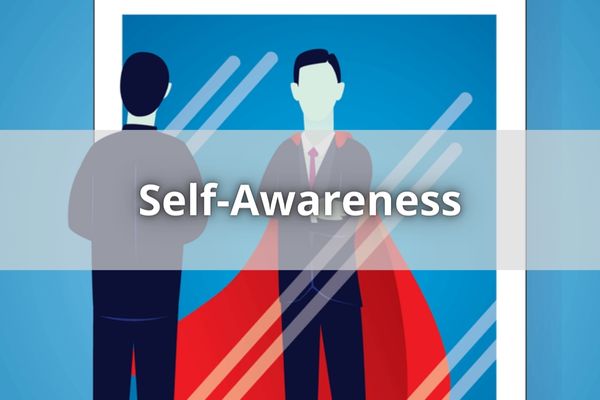School Counselor Traits: Essential School Counselor Skills
School Counselor Traits. As a school counselor, I am aware of how crucial certain qualities are to success. These qualities enable me to give my pupils the finest care possible and foster an atmosphere in which they may realize their greatest potential.
I’ll go over some of the most crucial qualities that each school counselor should possess in this essay. By emphasizing these fundamental traits, I intend to show why they are so crucial for developing a good working connection with students and assisting them in succeeding.
Empathy In School Counseling

Feeling and understanding what others are going through can be tough, but it’s essential for providing the best support – so show your empathy!
As a school counselor, being able to empathize with students is an important quality. It involves having good listening skills and the ability to really hear what someone is saying. You must be able to discern nuances in a person’s words or body language that could allude to anything other than what they are directly expressing.
You’ll be better able to comprehend how the kid is feeling and how you can help them if you can listen and interpret events appropriately.
Communication is also key when it comes to showing empathy as a school counselor. Not only do you need to be able to listen well, but also express yourself clearly. Being able to ask open-ended questions can encourage students to talk about their concerns in greater detail rather than just giving yes or no answers.
Showing genuine interest in the student’s story will demonstrate that you care about them and want them to succeed. It takes practice and patience, but developing empathy as a school counselor gives students comfort knowing that there’s someone who truly understands where they’re coming from.
Through actively listening and communicating effectively, counselors are better equipped to provide meaningful support that encourages positive growth for each individual student. Moving forward into communication then becomes easier if this foundation of trust has already been established between teacher and student.
Be An Excellent Communicator
You must be able to effectively communicate with those around you in order to gain valuable insight into their perspectives and experiences. As a school counselor, it’s essential to have good communication skills. This includes being a good listener, understanding others, and having strong assessment skills.
Being a good listener means that you can really listen without forming judgment or offering advice. The ability to understand what other people are saying and feeling is key in effective communication. Having strong assessment skills will help you get an accurate view of the issue at hand so that proper action can be taken.
It’s important for school counselors to possess these abilities as they must be able to build trust with their students. This is necessary for them to feel safe enough to open up about their issues. Furthermore, when counseling sessions become difficult or heated, it’s necessary for the school counselor to remain calm while still getting through their point of view in an assertive manner.
To transition into this next section on patience, it’s just as important for a school counselor not only to have strong communication skills but also to demonstrate patience in every situation they encounter.
Patience

Having the ability to stay calm and composed, even during difficult moments, is essential for being an effective communicator. As a school counselor, patience’s utmost importance; it helps build trust and understanding between the student and counselor.
To be patient means to be a good listener as well, which will help create a warm and inviting atmosphere for students. Patience also allows the counselor time to really listen and understand what the student is saying to better assist them with their issue at hand.
Good listening skills are key when it comes to having patience as a school counselor. Listening attentively without interruption can give you invaluable insight into how the person feels about their situation or issues they may be facing. This kind of listening will also encourage open communication between both parties while fostering trust and creating an air of respect in the room.
Additionally, active listening techniques such as repeating back what was said or expressing emotions through verbal cues can often help people feel heard without judgment or criticism from others.
When it comes to building relationships with students, having patience plays an important role in allowing counselors to get to know their students on a deeper level so that they can better understand them as individuals. By providing an environment where students feel accepted and heard, counselors can help foster positive relationships with each student while helping them work through any issues they may have more effectively than if there were no patience present in the room.
With these traits combined, counselors are then able to provide support in ways that best serve their individual needs while helping them reach their goals successfully.
Good Listening Skills
By actively listening to your conversation partner, you can show them that their words and feelings matter without having to say a word. Active listening is an important trait for school counselors because it helps them:
- Establish trust with students
- Encourage open communication
- Provide comfort during difficult conversations
Good school counselors need active listening skills in order to help students through struggles and make the most out of the counseling program. Through active listening, they can gain insights into what is troubling the student and be able to provide effective solutions that fit their needs.
An effective school counselor should also be able to listen carefully and ask appropriate questions in order to come up with strategies that will help each individual student feel supported.
Being able to actively listen is key for school counselors who want to be successful in providing a positive atmosphere where students feel comfortable sharing their thoughts and feelings. It allows them to understand how best they can approach certain topics or situations, as well as get valuable feedback from the student about how they have been managing whatever issues they are dealing with.
By being mindful of this skill set, it enables school counselors to create an environment where students feel safe enough to work through their problems without feeling judged or misunderstood.
Active listening not only helps foster positive relationships between counselor and student but also sets the groundwork for building effective communication skills which are essential if one hopes for success in any field – especially education.
Therefore, it’s vital for school counselors who want to provide meaningful support services within a supportive learning environment. With this trait alone, a good school counselor has already begun on the path towards helping every student reach their full potential both inside and outside of the classroom setting.
Organizational Skills
Being able to effectively organize your thoughts and tasks is an important skill to master in order to succeed. As a school counselor, it’s essential that you have strong organizational skills in order to be successful in your role. This means being able to assess what needs to be done and prioritize tasks accordingly. It also involves having strong leadership skills in order to motivate and inspire students, staff, and faculty alike.
| Task | Priority Level | Deadline |
| Organize supplies for upcoming event | High | 3 Days |
| Complete paperwork for student transfer | Medium | 5 Days |
| Attend staff meeting on new policies | Low | 7 Days |
Having good organizational skills can help ensure that guidance counselors are using their time wisely while also helping them meet deadlines for various projects or tasks they need to complete. By understanding the importance of prioritizing certain tasks over others, they are better able to fulfill their duties as school counselors while still staying organized and efficient with their work. Being able to organize resources, schedules, events and other activities is key in executing a successful plan of action as a school counselor.
Creative problem-solving is another key trait that successful school counselors possess which helps them navigate difficult situations.
Creative Problem Solving
Finding creative solutions to difficult situations is an essential skill for anyone looking to succeed. School counselors must possess the ability to think on their feet and come up with innovative ideas in order to help students. Traits such as good listening and a better understanding of human behavior, combined with the ability to listen attentively, are important for school counselors. This enables them to be better equipped with the skills necessary to help the client find a solution that is tailored specifically for their needs.
Creative problem solving requires effective communication between both parties, allowing counselors the opportunity to understand what challenges they may face while helping others. It also allows them flexibility when choosing how best to assist their clients, providing multiple approaches within each session so that clients can choose what works best for them.
Additionally, this skill helps counselors discover different ways of viewing a situation which might not have been considered before now; thus enabling counselors to provide alternative solutions or strategies that could potentially work better than what was originally suggested by the client.
Having a knack for creative problem solving makes it easier for school counselors to anticipate potential issues before they become large problems, helping them develop more comprehensive plans of action and provide guidance in difficult times. Through this approach, school counselors can anticipate possible conflicts or further complications in order to avoid such scenarios from escalating further; thus creating an environment where everyone involved feels comfortable enough to express themselves openly without fear of judgement or retribution.
With these traits combined together, school counselors are then better able to equip their students with tools required in order to resolve conflict effectively and make sound decisions going forward into their lives outside of school. As we move into discussing conflict resolution next, it becomes clear how these skills all go hand-in-hand when dealing with any kind of challenging situation faced by students today.
Conflict Resolution

Conflict resolution requires a steady hand and an eye for detail, as it takes skillful navigation to find the best path forward. A successful school counselor must be able to resolve conflicts quickly and effectively. Such an individual must have excellent observation skills in order to identify when two parties become heated and know exactly how to interrupt in order for all sides to feel trust that their issues can be solved.
| Action | Benefit | Result |
| Observing conflict | Gain insight into the situation | Understand how best to intervene |
| Interrupting calmly | Show parties that you are there to help | Create a sense of trust between all sides |
| Facilitating discussion | Promote understanding on both sides | Allow for effective resolution of the issue at hand |
Resolving conflict is not always easy, but it is essential in helping those who come into contact with a school counselor. It takes patience and empathy on behalf of the professional in order for them to succeed in creating a peaceful solution for everyone involved. By using these strategies, counselors can ensure that they are well equipped with the necessary tools when faced with such situations, allowing them to take on any challenge that may come their way. With this knowledge under their belt, counselors can move onto stress management confidently.
Stress Management
Managing stress is key to helping those around you stay on track and keep their emotions in check. School counselors are trained professionals with a master’s degree, giving them the necessary skills to support students who may be dealing with overwhelming stress. They can provide a sense of comfort and trust in order for students to feel safe expressing their feelings.
- Counselors focus on calming activities such as breathing exercises, yoga, or mindfulness techniques.
- They offer comprehensive advice and assistance with decisions like course selection, college applications, or career paths.
- Counselors strive to create an environment where students feel comfortable talking about any problem they may be having.
School counselors understand the importance of self-awareness when it comes to managing stress levels, which includes recognizing individual triggers that could add additional strain. This approach helps the student move forward in life while working towards a healthier lifestyle. By implementing these methods, school counselors ensure that every student has the tools necessary to handle any stressful situation they encounter now and in the future.
Self-Awareness

Self-awareness is an important skill to have when it comes to managing stress and understanding oneself, as it allows us to recognize our own feelings, thoughts, and behaviors. School counselors must possess this trait in order to effectively help their students. A table of traits that make up a successful school counselor follows:
| Characteristics | Necessary Skills |
| Students Trust | Listens without judgement |
| Appreciates Diversity | Constructive feedback |
| Encourages Reflection | Self-reflection skills |
The ability for school counselors to be self-aware is essential for fostering trust with their students and helping them through difficult situations. It also helps the counselor become aware of how his or her actions may affect the students, allowing them to adjust accordingly. Being able to recognize how one’s words and actions can impact others helps build relationships and encourages mutual respect between the student and counselor. Professionalism in a school setting will ensure this relationship remains positive and beneficial for all parties involved.
Professionalism
Professionalism is essential in any setting to ensure relationships remain positive and beneficial for all involved, as it helps foster trust and encourages mutual respect. The career as a school counselor requires these traits every day in order to work successfully with students, parents, teachers, administrators, and other professionals within the school counseling program.
Some of the qualities that school counselors should possess include:
- A clear understanding of what the student’s needs are
- The ability to communicate effectively
- Professional boundaries when working with students
- An awareness of ethical considerations at the University of North Carolina
- Self-regulation techniques for managing emotions
School counselors must be able to identify their own values and beliefs so they can separate them from those of others. They must also be able to recognize how their own biases may impact their interactions with others. It is crucial for school counselors to maintain an open mind while providing guidance and support in order for students’ needs to be adequately addressed.
Additionally, they need to demonstrate flexibility when working with different cultures or populations in order to provide culturally competent services. By being professional in all aspects of their job, school counselors can create a safe environment where diverse perspectives are respected and valued. With this approach, everyone involved will be more likely receive the assistance needed in a respectful manner.
This sets up a foundation that allows each person involved feel comfortable enough move forward into addressing any issues that arise during the counseling process.
Appreciate Diversity
As a school counselor, it’s important to recognize and understand different cultures in order to provide culturally competent services, giving everyone involved the respect they deserve. Being aware of the kid culture is essential to gaining insight into how students think and learn. This long way toward helping counselors better support their students and implement programs that are successful.
| Keyword | Explanation |
| Kid Culture | Knowing what the current trends and interests are |
| Long Way Toward | Taking steps in order to gain understanding |
| Implement Programs | Create initiatives that are tailored for the student |
| Friend to Professional | Making sure there is an open line of communication |
| Ability to Coordinate | Plan activities with other staff members |
Being able to make a connection between friend and professional helps create an environment where the student feels comfortable talking about any issues or concerns they may have. Additionally, having the ability to coordinate certain activities with other staff members can help ensure that all students receive the level of care they need. By being aware of how different cultures approach topics like mental health, school counselors can be more effective when providing guidance and support.
Conclusion: So Which School Counselor Traits Should Be Consider?
As a school counselor, I understand the importance of having certain traits and qualities. Empathy, communication, patience, active listening, organizational skills, stress management, self-awareness, and cultural competency are all essential for success in this role. These traits have become second nature to me over time, and I’m confident in my ability to use them to help students reach their full potential.
I take pride in being able to provide much-needed support for students during such formative years of their lives. With these traits at my disposal, I’m sure that I can make a positive impact no matter what challenges arise.







